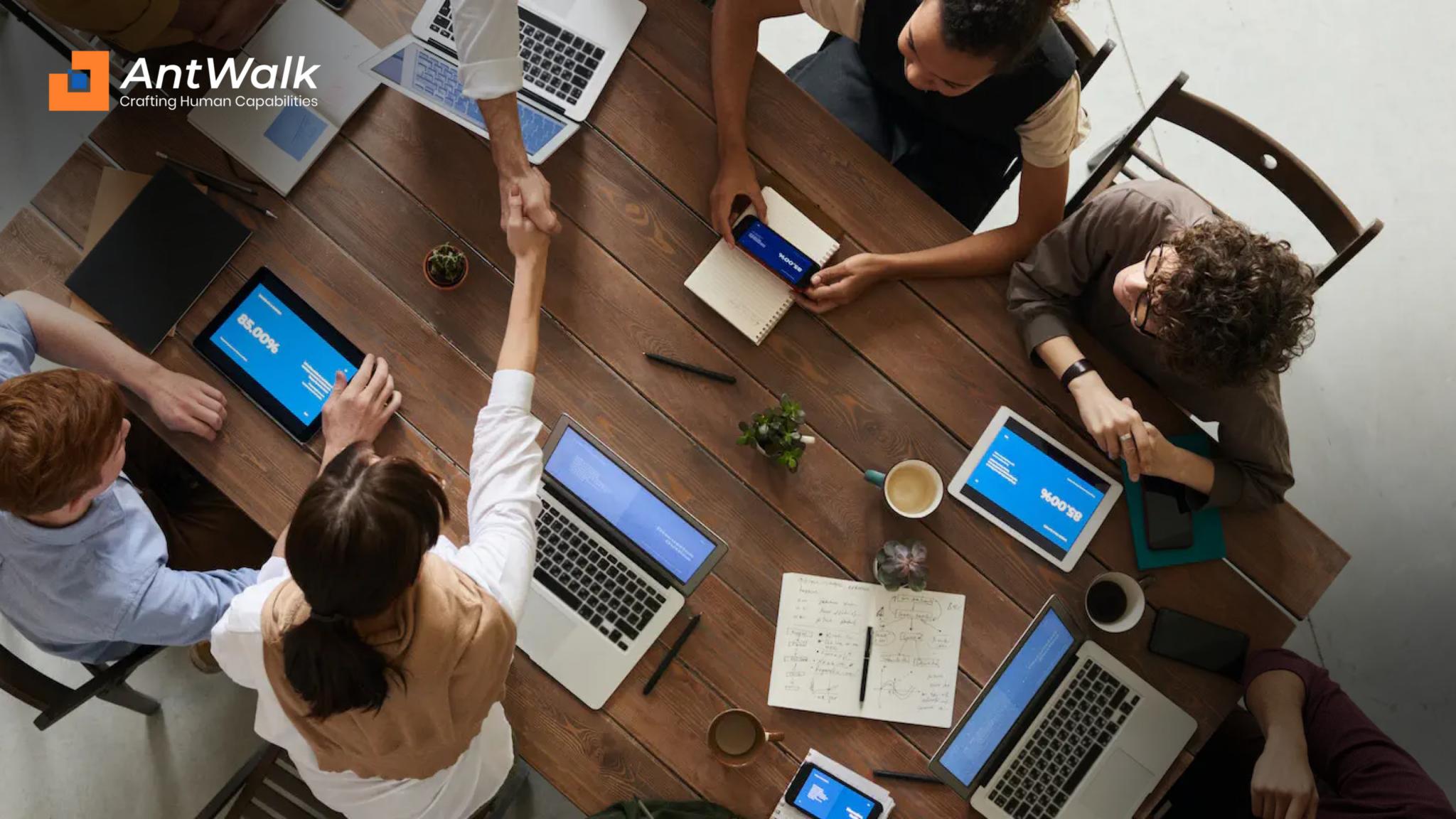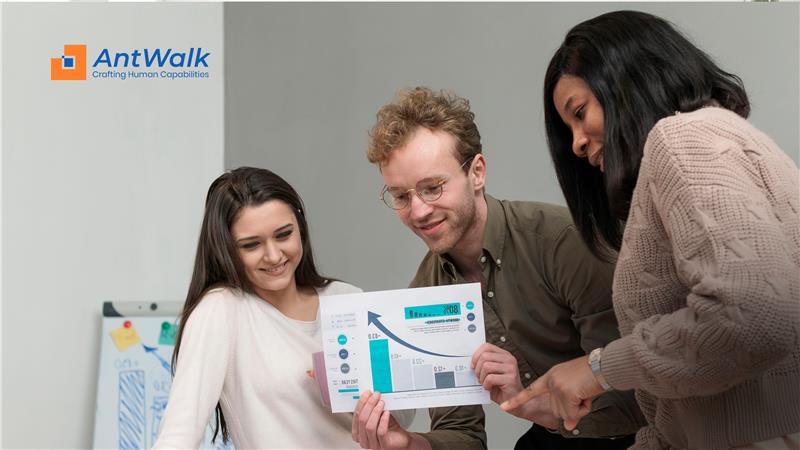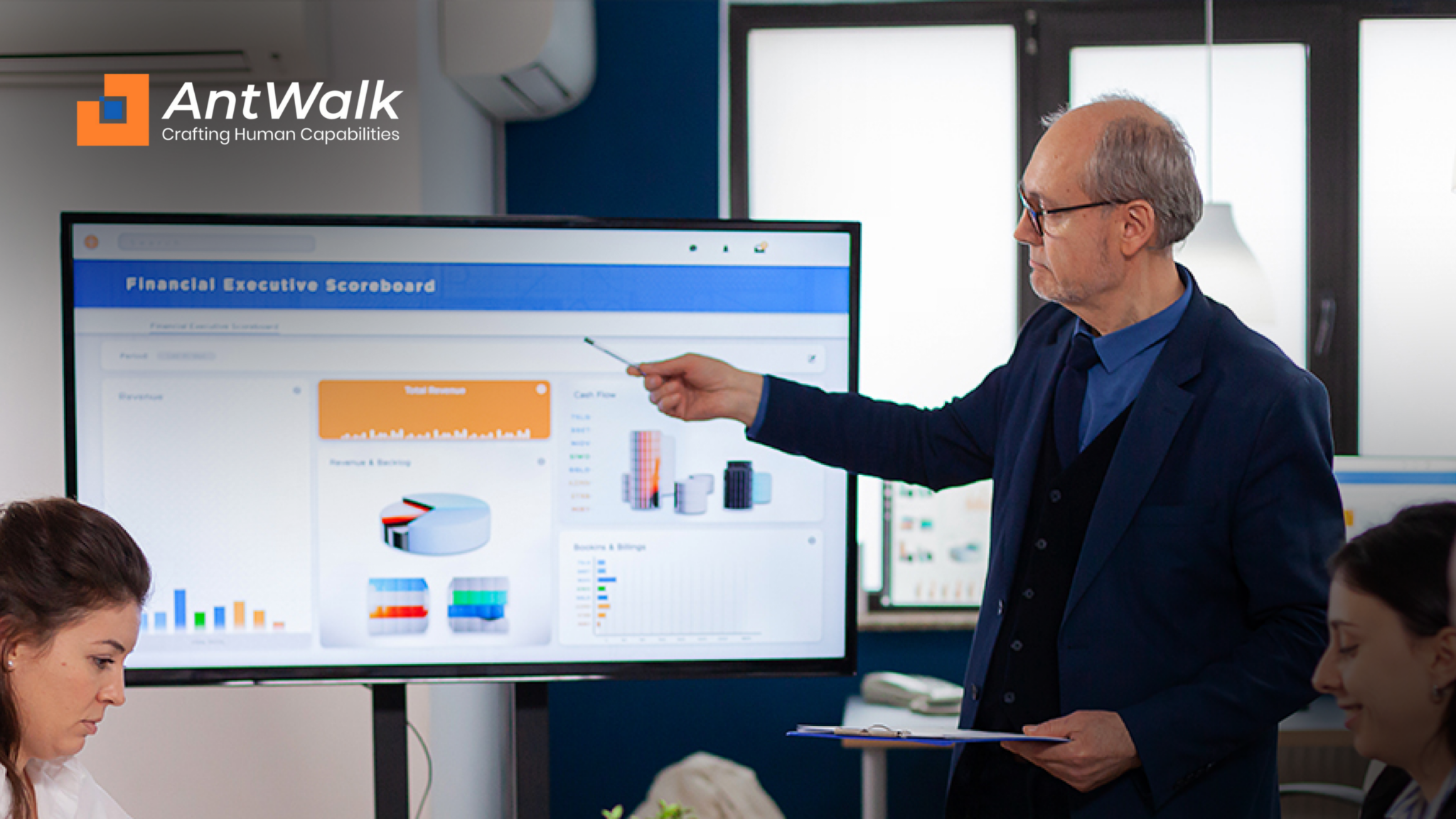The onboarding process is one of the most critical phases in an employee’s journey. It is not just about helping new hires adjust to their roles but also preparing them with the future skills they need to thrive in an evolving business landscape. In 2025, onboarding must go beyond traditional role-specific orientation and focus on building adaptability, innovation, and resilience. At AntWalk, we follow a detailed, business-focused approach to ensure onboarding programs are not only effective but also aligned with the strategic goals of the organization.
Why Future Skills Are Key to Onboarding in 2025
According to the World Economic Forum, 44% of the skills needed for jobs will change by 2025. With rapid technological advancements and shifting business models, organizations must ensure employees are equipped to handle new challenges from day one. Future-ready onboarding programs help establish:
- Resilience: Employees who can adapt to changing business needs.
- Continuous Learning: A mindset of upskilling and development that starts with onboarding.
- Strategic Alignment: New hires who understand and contribute to business goals from the outset.
AntWalk’s Approach to Designing Onboarding Programs
At AntWalk, we adopt a comprehensive and structured methodology to create onboarding programs that develop future skills. Here’s how we do it:
1. Understanding Business Needs
The process begins with a thorough understanding of the organization’s objectives. By identifying the key outcomes the business wants to achieve, we ensure the onboarding program is aligned with these goals.
2. Suggesting Solutions Through Collaboration
To create impactful programs, we gather insights through Focused Group Discussions (FGDs) with employees, including high and low performers. These discussions help us understand:
- Challenges faced by employees.
- Strengths they bring to the table.
We also engage with reporting managers to align their expectations for the cohort with business objectives.
3. Creating the FGD Report
Based on the insights from FGDs, we prepare a detailed report that outlines:
Mindset: Behavioral traits that need development.
Skillset: Technical and functional skills required for success.
Toolset: Resources and tools employees need to excel.
The report includes competency suggestions tailored to the organization’s needs and sets the foundation for designing the onboarding program.
4. Designing Content and Pre-Assessment
Before the onboarding sessions begin, we use Training Need Analysis (TNA) surveys, quizzes, and pre-assessment questionnaires to gauge the current capabilities of the cohort. This helps in creating personalized learning paths for each employee.
5. Action-Packed Sessions
Our onboarding sessions are designed to be engaging and immersive, focusing on practical and future-ready skills. These sessions include:
- Roleplays and Digital Activities: Real-world scenarios to practice decision-making and collaboration.
- Think, Reflect, and Act Exercises: Activities to encourage critical thinking and self-reflection.
- Discussions on Financial Acumen and Sales Skills: Tailored to meet the specific needs of roles and industries.
Leveraging Technology to Enhance Onboarding
Technology is at the core of our onboarding programs. We integrate tools like:
- Gamified Learning: To make sessions interactive and enjoyable.
- AI-Driven Assessments: To track learning progress and provide actionable insights.
- Virtual and Augmented Reality: To simulate workplace scenarios and enhance technical skills.
Measuring Success and Continuous Improvement
After the sessions, we share a Project Plan Report with key stakeholders. This report includes:
- Feedback and Testimonials: Insights from the cohort on the onboarding experience.
- Capability Maturity Index: A comparison of pre- and post-assessment results to measure progress.
- Recommendations for Future Training: Suggestions to maintain momentum and continue skill development.
Post-onboarding assessments and periodic surveys ensure we continuously track employee growth and refine the program as needed.
Conclusion
Onboarding programs in 2025 need to go beyond orientation and paperwork. They must prepare employees for the future by focusing on skills that drive both individual and organizational success. At AntWalk, our structured and collaborative approach ensures onboarding programs are engaging, personalized, and aligned with business objectives.
By fostering a culture of continuous learning and leveraging cutting-edge technology, we help organizations build a workforce that is resilient, innovative, and future-ready.
Want to design an onboarding program tailored to your organization’s needs? Let’s connect and create a roadmap for success.
FAQs: Designing Onboarding Programs That Develop Future Skills
Onboarding programs can foster adaptability by including dynamic activities like simulations, role-playing scenarios, and exposure to cross-functional teams. AntWalk offers AI-powered roleplays and simulations that mimic real-world challenges, allowing new hires to practice adaptability in a safe, structured environment.
Behavioral skills, such as communication, teamwork, and emotional intelligence, are crucial for creating collaborative and innovative workplaces. Through AntWalk’s expert-led coaching calibrations and peer teaching modules, organizations can ensure that new hires develop these soft skills early on while integrating seamlessly into their teams.
Remote onboarding can be made effective by leveraging virtual collaboration tools, regular check-ins, and online learning resources. AntWalk’s integrated learning platform facilitates remote onboarding with on-demand learning modules, live expert-led sessions, and personalized feedback, helping remote employees feel connected and prepared from day one.
Embedding company culture into onboarding ensures that new hires understand the organization’s values, mission, and work ethics from day one. AntWalk enables this integration through customized mentorship programs and pre-onboarding learning paths, helping employees align with company values before they even step into their roles.
Gamification adds an interactive and engaging element to onboarding. With AntWalk’s gamified learning tools and progress dashboards, employees stay motivated to complete their onboarding tasks while actively participating in developing critical future skills like problem-solving and collaboration.













